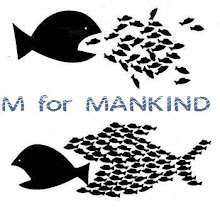The following pictures are from islamic terror but,
if I had to put some of the wars "The West" fought for make-believe reasons,
be they economic, 'idealistic' or nationalist, it would take
100000000000000000000000000000000000000000000000's blogs
------->>>>>>>
Crimes against humanity, open wars commited by
apparently legitimate governements
(Arizona Sheriff: ‘Our Own Government Has Become Our Enemy’
http://www.cnsnews.com/news/article/70324)
that are in fact
following an occult script to attain world control as
said in the Protocols:
http://www.henrymakow.com/our_terminal_disease.html
and elsewhere,
--http://loveforlife.com.au/node/7103--
(plane spraying chemtrails:
http://www.youtube.com/watch?v=bSSWnXQsgOU&feature=player_embedded
AND SO MUCH MORE planned holocausts from WW2 to Vietnam, 9/11 to BP...)











.jpg)





Despite the remarkable convergences outlined above, there is one area where Buddhism may enter in conflict with modern cosmology. This concerns the fact that the universe has had a beginning and has been fine-tuned to an extreme degree for the emergence of life and consciousness.
5.1 Copernicus’s ghost
Since the sixteenth century, the place of humanity in the universe has shrunk considerably. In 1543, Nicholas Copernicus knocked the earth off its pedestal as the center of the universe by demoting it to the rank of just another planet revolving round the sun. Ever since, the ghost of Copernicus has not ceased to haunt us. If our planet wasn’t at the center of the universe, then, our ancestors thought, the sun must be. Then it was discovered that it is just a suburban star among the hundreds of billions of stars that make up our galaxy. We now know that the Milky Way is only one of the several hundred billions of galaxies in the observable universe, which has a radius of about fifteen billion light-years. Humanity is just a grain of sand on the vast cosmic beach. The shrinking of our place in the world led to French philosopher Blaise Pascal’s cry of despair in the seventeenth century : `The eternal silence of endless space terrifies me’. His anguish was echoed three centuries later by the French biologist Jacques Monod in his book `Chance and Necessity’ (Knopf, New York 1971) : `Man knows at last he is alone in the unfeeling immensity of the universe, out of which he has emerged only by chance’, and by physicist Steven Weinberg, who remarked : `The more the universe seems comprehensible, the more it also seems pointless’ (in The first three minutes, Basic Books, New York, 1977).
5.2 The anthropic principle
I do not think that human life and consciousness arised purely by chance in an unfeeling universe. To my mind, if the universe is so large, then it evolved this way to allow us to be here. Modern cosmology has discovered that the conditions that allow for an intelligence to emerge seem to be coded into the properties of each atom, star and galaxy in our universe and in all of the physical laws that govern it. The universe appears to have been very finely tuned in order to produce an intelligent observer capable of appreciating its organization and harmony. This statement is the basis of the `anthropic principle’, from the Greek `anthropos’ meaning `person’. There are two remarks to be made. First, the term `anthropic’ is really inappropriate, as it implies that humanity in particular was the goal toward which the universe has evolved. In fact, anthropic arguments would apply to any form of intelligence in the universe. Second, the definition I gave above concerns only the `strong’ version of the anthropic principe. There is also a `weak’ version which doesn’t presuppose any intention in the design of nature. It almost comes down to a tautology — the properties of the universe must be compatible with the existence of humankind — and I will not discuss it further. What is the scientific basis of the anthropic principle ? The way our universe evolved depended on two types of information : 1) its initial conditions such as its total mass and energy content, its initial rate of expansion, etc. and 2) about fifteen physical constants : the gravitational constant, the Planck constant, the masses of the elementary particles, the speed of light, etc. We can measure the values of these constants with extreme precision, but do not have any theory to predict them. By constructing `model universes’ with varying different initial conditions and physical constants, astrophysicists have discovered that these need to be fine-tuned to the extreme : if the physical constants and the initial conditions were just slightly different, we wouldn’t be here to talk about them. For instance, let’s consider the initial density of matter in the universe. Matter has a gravitational pull that counteracts the force of expansion from the Big Bang and slows down the universe’s rate of expansion. If the initial density had been too high, then the universe would have collapsed into itself after some relatively short time — a million years, a century or even just a year, depending on the exact density. Such a time span would have been too short for stars to accomplish their nuclear alchemy and produce heavy elements like carbon, which are essential to life. On the other hand, if the initial density of matter had been too low, then there would not have been enough gravity for stars to form. And no stars, no heavy elements, and so no life ! Everything hangs on an extremely delicate balance. The initial density of the universe had to be fixed to an accuracy of 10$^60$. This atonishing precision is analogous to the dexterity of an archer hitting a one-centimetre-square target placed fifteen billion light-years away, at the edge of the observable universe ! The precision of the fine-tuning varies, depending on the particular constant or initial condition, but in each case, just a tiny change makes the universe barren, devoid of life and consciousness.
5.3 Chance or Necessity ?
How to account for that extraordinary fine-tuning ? It seems to me that we are faced with two distinct choices : the tuning was the consequence of either chance or necessity (to quote the title of Monod’s book). If we opt for chance, then we must postulate an infinite number of other parallel universes in addition to our own (these multiple universes form what is sometimes called a multiverse). Each of these universes will have its own combination of physical constants and initial conditions. But ours was the only universe born with just the right combination to have evolved to create life. All the others were losers and only ours is the winner. If you play the lottery an infinite number of times, then you inevitably end up winning the jackpot. On the other hand, if we reject the hypothesis of parallel universes and adopt the hypothesis of a single universe, ours, then we must postulate the existence of a principle of creation which finely adjusted the evolution of the universe. How to decide ? Science cannot help us to choose between these two options. In fact, there are several different scientific scenarios that allow for multiple universes. For example, Hugh Everett has proposed, to get around the probabilistic description of the world by quantum mechanics, that the universe splits into as many nearly identical copies of itself as there are possibilities and choices to be made. Some universes would differ by only the position of one electron in one atom, but others would be more radically different. Their physical constants, initial conditions and physical laws wouldn’t be the same. Anther scenario is that of a cyclical universe with an infinite series of Big Bangs and Big Crunches. Whenever the universe is reborn from its ashes to begin again in a new Big Bang, it would start with a new combination of physical constants and initial conditions. A third possibility is the theory proposed by Andrei Linde whereby each of the infinite number of fluctuations of the primordial quantum froth created a universe. Our universe would then be just a tiny bubble in a super-universe made up of an infinite number of other bubbles. None of those universes would have intelligent life, because their physical constants and laws wouldn’t be suitable. Intriguing as these notions are, I do not subscribe to the idea of multiple universes. The fact that all of these universes would be unobservable, and thus unverifiable, contradicts my view of science. Science becomes metaphysics when it is no more subjected to the test of experimental proof. Furthermore, Occam’s razor bids us to cut out all the hypotheses that are not necessary : why create an infinite number of barren universes just to produce one that is conscious of its own existence ? In my work as an astronomer, I often have the good luck to travel to observatories to contemplate the cosmos. I am always awed by its organization, beauty, harmony and unity. It is hard for me to think that all that splendor is but the product of pure chance. If we reject the idea of multiple universes and postulate the existence of just one universe, ours, then it seems to me that, we must wager, just like Pascal, on the existence of a creative principle responsible for the fine-tuning of the universe. For me, this principle is not a personified god. It is rather a pantheistic principle which is omnipresent in Nature, not unlike that described by Einstein and Spinoza. Einstein puts it like this : `The scientist is possessed by the sense of universal causation... His religious feeling takes the form of a rapturous amazement at the harmony of natural law, which reveals an intelligence of such superiority that, compared with it, all the systematic thinking and acting of human beings is an utterly insignificant reflection.’ (in The Quotable Einstein, 1996, ed. Alice Calaprice, Princeton : Princeton University Press, p. 151). He added : `I believe in Spinoza’s God who reveals himself in the harmony of all that exists, but not in a God who concerns himself with the fate and actions of human beings.’ (in The Quotable Einstein, 1996, ed. Alice Calaprice, Princeton : Princeton University Press, p. 147).
5.4 Buddhism denies the existence of a creative principle
The Pascalian wager I just outlined is contrary to the Buddhist approach, which denies the existence of a creative principle (or a watchmaker God). It considers that the universe doesn’t need tuning for consciousness to exist. According to it, both have always coexisted, so they cannot exclude each other. Their mutual suitability and interdependence is the precondition for their coexistence. I am not totally at ease with this explanation. While I admit that this might explain the fine-tuning of theuniverse, it seems far less clear to me that Buddhism can answer existential questions, of the sort that Leibniz asked about the universe : `Why is there something, rather than nothing ?’ I would add : `Why are the natural laws as they are and not different ?’ For example, it would be quite easy to imagine us living in a universe governed only by Newton’s laws. But this isn’t the case. For the laws of quantum mechanics and relativity describe the known universe. The Buddhist view also raises other questions. If there is no creator, the universe cannot have been created. So there is neither a beginning nor an end. The only sort of universe that would be compatible with this idea is a cyclical one, with an endless series of Big Bangs and Big Crunches. But the scenario of the universe one day collapsing into itself in a Big Crunch is far from being proven scientifically. It all depends on the amount of dark matter in te universe, and this is as yet unknown. According to the latest astronomical observations, the universe does not seem to have enough dark matter to stop and reverse its expansion. They seem to indicate a flat universe which will expand forever and will stop only after an infinite time. Thus our present state of knowledge seems to exclude the idea of a cyclical universe. As for streams of consciousness that have coexisted with the universe since the first fractions of a second after the Big Bang, science is still far from being able to examine this question. Some neurobiologists think that there is no need for a consciousness continuum that coexists with matter, and that the former can emerge from the latter, once a certain complexity threshold has been passed."











 Poor Unfortunate Souls (see them
Poor Unfortunate Souls (see them 

















